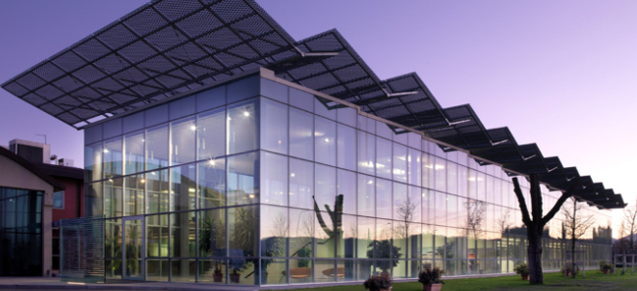✕



An interview with Maurizio Focchi, Managing Director of Focchi Spa, a company located in Poggio Torriana (Rimini) specialising in the production of building skins. The company ended 2016 with a turnover of 50 million euros and growth prospects for the coming years.

The company was founded in 1914. I represent the third generation and the fourth one is about to come on board. It started with my grandfather who was a blacksmith and worked with iron, making ploughs in particular. In the 1950s we started to work with aluminum, making windows and doors for the local hotel market. In the 1980s, due to the market crisis at that time, my brother Paul (the president of the company) and I moved from producing windows to producing glass facades. In recent years we have worked hard to customise our product and diversify by collaborating with architects to create unique pieces.
Our products are custom-made and we combine planning with design skills. We can develop even the most extraordinary architecture projects on an industrial scale, and produce them with the materials and features that the customer wants. The reasons for our success are our expert design skills, craftsman-like attention to detail, and capacity to handle large projects.
We are now aiming for a new market - the US - and offering a wider range of products, including facades with energy-efficient elements for both new projects and restorations.
We strive constantly for innovation; there is something new in every one of our projects. For example for the Isozaki Tower in Milan we managed to create large, cold-curved glazings to reduce costs while maintaining high quality. In terms of long-term innovation, we try to maintain a global view of the industry and we’re working at the moment on energy efficiency and the Internet of Things, developing facades with remote control for example.
We never outsource, even for the high quality of workmanship and materials required for ad-hoc projects. Over the years we have worked in many countries, but we’ve now decided to focus on the few countries where we currently do most of our business and feel at home. Our philosophy is to focus solidly on just a few markets.
At the moment we are in Italy and Britain, but have worked in many other countries. We are focusing on these two markets because in this sector you need to specialise in specific areas, but we’re also planning to move into the US market in the next two years, beginning with New York.
We made an important decision 20 years ago when we entered the UK, which was a turning point for the company. The quality of Italian production, in terms of both technology and creativity, is appreciated in the UK more than it is in other markets.
As for the Elite Growth project, the range of topics discussed is extremely interesting, and we also find the contact with other companies useful for stimulating new ideas. Being in touch with both advisors and representatives from participating companies is extremely beneficial. Another important issue is education, because entrepreneurs need to constantly update their skills.